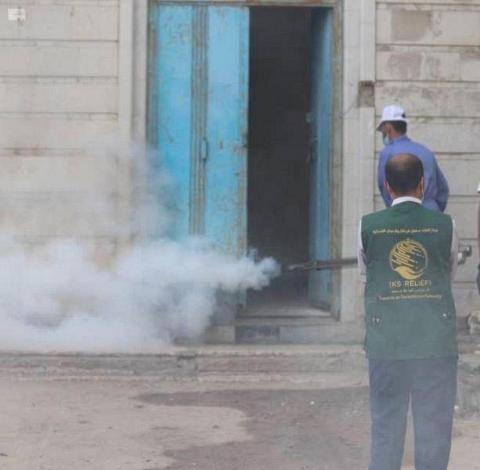The Yemeni Impasse: War During the Pandemic


As of the end of spring, the coronavirus crisis has not brought any noticeable easing to the conflict in Yemen. What is more, it would seem that the warring sides decided to take advantage of the confusion that befell the external forces and change the situation on the frontlines. Despite the already worsening humanitarian situation in the country and the UN calls for a ceasefire during the pandemic, offensive operations nevertheless continued. At the same time, the state of affairs in the south of the country has been deteriorating, with those in favour of self-determination again rearing their heads.
We should know by now that an epidemic is not going to stop the hostilities in Yemen. Not even the cholera outbreak that has affected approximately one million people in the country over the past three years is enough to make the warring factions lay down their weapons. In fact, with the cholera epidemic still raging and chronic famine in many parts of the country, the coronavirus, which has taken the lives of relatively few, has gone largely unnoticed. Both the warring parties and the population at large have come to terms with the constant threat of outbreaks of various diseases (cholera, diphtheria, measles, Dengue fever, etc.) due to the lack of basic infrastructure and centralized immunization plans.
What is more, the reality of the situation in Yemen is that those fighting on the front are more likely to survive an epidemic than civilians living in overpopulated cities, where sanitary conditions are truly awful. An estimated 17.8 million Yemenis were without safe water and sanitation in 2019, and 19.7 million did not have access to adequate healthcare. Meanwhile, those on the frontlines generally eat better and, unlike the civilian population, have priority access to medical supplies and personnel. Ansar Allah (Houthi) militants are even using the coronavirus crisis to recruit new soldiers, convincing young people that it is better to die a martyr in battle than to suffer an inglorious death from the virus.
It would thus appear that the Houthis are as determined as ever to win the civil war, or at the very least to inflict a series of humiliating defeats on the forces that are loyal to the internationally recognized government of President Abdrabbuh Mansur Hadi and the Saudi-led coalition troops. Even after the coronavirus had hit the country, the Houthis resumed ballistic missile attacks on Saudi Arabia, and also launched an offensive in Marib Governorate. Clashes also broke out near the strategically important Al-Hudaydah Port.
The Battle of Marib
Marib Governorate is considered the richest province in northern Yemen, with oil and gas fields, a strategically important oil refinery and the country’s largest power plant. It is also of no small importance that Marib is a stronghold of the moderate Yemeni Congregation for Reform (al-Islah), which Saudi Arabia is backing in the conflict. Losing Marib will deal a serious blow to al-Islah’s positions, as well as to Riyadh’s interests in Yemen.
The pandemic provides the Houthis with an opportunity to carry out offensive actions, as the external sponsors of the Hadi government, and Saudi Arabia at the top of that list, are busy with their own domestic issues and cannot pay much attention to Yemen. There has been a noticeable drop-off in the intensity of airstrikes, for example, which has afforded the Houthis the opportunity to deploy both mobile units with light weapons and various armoured vehicles.
There is no doubt that the Houthi command is intent on capturing Marib, coordinating its campaign on the city on three fronts at once. At the same time, the main defenders of Marib are the militias of local Sunni tribes, who do not want to see a Houthi victory, but would likely be willing to work towards a compromise with Ansar Allah in order to avoid suffering endless losses. All the more so because the official armed forces exist primarily on paper and include the names of many phantom soldiers whose wages are divvied up among the commanding officers. The shortage of experienced higher-ranking personnel – a consequence of the fact that many officers do not want to cooperate with Hadi or al-Islah – has also proved detrimental to the combat capabilities of the government forces.
If the Houthis are able to capture Marib, then they will have control over almost all of northern Yemen, which will seriously weaken the positions of President Hadi. And this will open the door for further offensives in the south of the country, particularly the oil-rich Shabwah and Hadhramaut governorates, further down the line. Given the problems in southern Yemen (which we will expand upon below), the Battle for Marib may be seen as a turning point in the war.

Yemeni officials on Monday condemned arrests and prosecutions by the Iran-backed Houthi militia directed against media, journalists and celebrities…

Yemen's warring parties are gearing up for new waves of conflict in 2023 amid a lack of decisive steps towards sustainable peace, adding to the suf…

The UAE will help to recruit doctors and deliver crucial supplies for hospitals in Yemen under a major healthcare drive. The Khalifa bin…